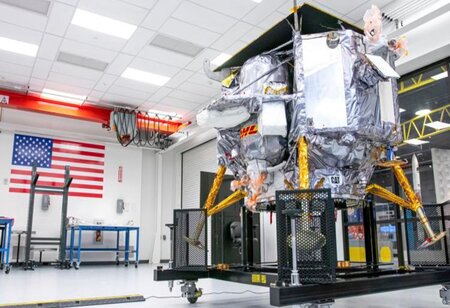Critical Fuel Loss Puts Historic US Moon Expedition in Jeopardy
By Consultants Review Team
 America's ambitious private lunar mission is on the brink of failure after encountering a "critical loss" of fuel, dealing a major setback to the nation's endeavor to deploy its first robotic spacecraft on the Moon in fifty years, according to AFP reports.
America's ambitious private lunar mission is on the brink of failure after encountering a "critical loss" of fuel, dealing a major setback to the nation's endeavor to deploy its first robotic spacecraft on the Moon in fifty years, according to AFP reports.
The Peregrine Lunar Lander, part of the inaugural flight of United Launch Alliance's Vulcan rocket, experienced technical challenges shortly after its successful launch from Florida's Cape Canaveral Space Force Station. Astrobotic, the mission's organizer, reported issues with orienting the lunar lander's solar panel toward the Sun and maintaining the onboard battery due to a propulsion system malfunction.
Despite engineering efforts to correct the spacecraft's orientation, Astrobotic confirmed a "critical loss of propellant" on X, suggesting a potential failure in executing a controlled lunar touchdown. An image released by the company displayed extensive damage to the spacecraft's outer layer, supporting their theory of a propulsion system anomaly.
Initially slated to reach the Moon and land in the Sinus Viscositatis region on February 23, the apparent failure of Peregrine raises concerns about the viability of the Commercial Lunar Payload Services (CLPS) program, designed to leverage commercial entities for lunar exploration at reduced costs.
While NASA Administrator Bill Nelson expressed optimism about ULA's Vulcan rocket success and emphasized the agency's commitment to expanding space exploration with commercial partners, questions may arise about the effectiveness of the CLPS program, given Astrobotic's receipt of over $100 million from NASA for the mission.
The challenges of a controlled Moon landing were underscored, with roughly half of all historical attempts ending in failure. With no atmosphere for parachute use, lunar spacecraft rely solely on thrusters for descent, navigating challenging terrain. The U.S. is relying on the commercial sector, including companies like Astrobotic, to advance lunar exploration as part of NASA's Artemis program.
Despite this setback, NASA remains dedicated to lunar exploration, with another contracted company, Intuitive Machines, set to launch in February. The Artemis program aims to lay the groundwork for astronaut returns to the Moon, a crucial step in preparing for future Mars missions.
Private payloads aboard Peregrine, including a physical Bitcoin, cremated remains, and DNA, face an uncertain fate. Controversy surrounds the inclusion of human remains, with the Navajo Nation, the largest Indigenous tribe in the U.S., objecting to the act as a desecration of sacred space, though their concerns were ultimately overlooked by White House and NASA officials.




